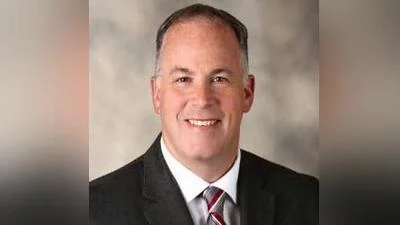Scott Allen, Wisconsin State Representative for 82nd District | Facebook
Scott Allen, Wisconsin State Representative for 82nd District | Facebook
According to the Wisconsin State Legislature's official website, the bill was described as follows: "requiring state employees to perform their work at the offices of their employer".
The following is our breakdown, based on the actual bill text, and may include interpretation to clarify its provisions.
In essence, this bill mandates that state agency employees in Wisconsin perform their work at designated state agency offices during their scheduled work hours, starting July 1, 2025. This requirement applies broadly to all state agencies, including the Board of Regents of the University of Wisconsin System, the legislature, and the courts. The bill provides exemptions for telehealth services and for duties that were already conducted off-site before March 1, 2020. The intent appears to be to increase in-person work attendance within state agencies while maintaining certain remote work accommodations that predate the COVID-19 pandemic.
The bill was co-authored by Senator Cory Tomczyk (Republican-29th District), Representative Elijah R. Behnke (Republican-6th District), Representative Lindee Rae Brill (Republican-27th District), Representative Barbara Dittrich (Republican-99th District), Representative Chanz J. Green (Republican-74th District). It was co-sponsored by Senator Rachael Cabral-Guevara (Republican-19th District), Senator Romaine Robert Quinn (Republican-25th District), and Senator Rob Stafsholt (Republican-10th District), along 10 other co-sponsors.
Scott Allen has co-authored or authored another 10 bills since the beginning of the 2025 session, with none of them being enacted.
Allen graduated from the University of Wisconsin-Milwaukee in 1989 with a BA.
Allen, a Republican, was elected to the Wisconsin State Assembly in 2025 to represent the state's 82nd Assembly district, replacing previous state representative Chuck Wichgers.
In Wisconsin, the legislative process starts when a senator, constituent, group, or agency proposes an idea for a bill. After drafting, the bill is introduced, numbered, and referred to a committee for review and public input. If approved, it moves through three readings and votes in both the Senate and Assembly. Once both chambers pass the same version, the bill goes to the governor, who can sign it, veto it, or let it become law without a signature. Only a small share of bills introduced each session ultimately become law. You can learn more about the Wisconsin legislative process here.
| Bill Number | Date Introduced | Short Description |
|---|---|---|
| AB39 | 02/17/2025 | Requiring state employees to perform their work at the offices of their employer |
| AB37 | 02/17/2025 | Personalized registration plate fees for gold star family special registration plates. (FE) |
| AB20 | 02/06/2025 | Allowing certain married persons to claim the earned income tax credit when filing a separate return. (FE) |
| AB19 | 02/06/2025 | Increased penalties for crimes against adults at risk; restraining orders for adults at risk; freezing assets of a defendant charged with financial exploitation of an adult at risk; sexual assault of an adult at risk; and providing a penalty |






 Alerts Sign-up
Alerts Sign-up